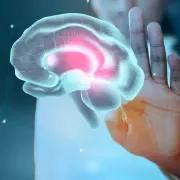Importance Of Early Diagnosis And Treatment For Neurological Disorders
In This Article
Importance Of Early Diagnosis And Treatment For Neurological Disorders
Alaka
Updated on June 04, 2024
Medically verified by Dr. Pournami
Fact checked by Dr. Arya

Neurology
8 min read
Neurological disorders can cause great harm to us. They affect how our brain and nerves work. It causes all kinds of challenges in our daily lives.
But, if we could identify these disorders at an early stage, we have a better chance of treating and fixing them.
That is why early diagnosis is important. Want to know more about the importance of early diagnosis? Wondering how you can do it? Curious about the treatment options?
Karetrip is here to help you with that. In this blog, we will be breaking down the neurological disorders and why early detection is crucial.
Understanding Neurological Disorders
Neurological disorders are diseases that affect the brain, nerves, as well as spinal cords of the human body.
These conditions may impact an individual's capacity to perform basic tasks such as moving, speaking, breathing, swallowing, learning, and recalling information. Additionally, they may result in discomfort and impact emotional well-being, ultimately hindering one's ability to carry out daily activities.
Neurological disorders include many conditions. Some of them include:
-
Neurodegenerative disorders: These involve the progressive degeneration of nerve cells, leading to conditions like Alzheimer's disease, Parkinson's disease, and amyotrophic lateral sclerosis (ALS).
-
Epilepsy: Characterised by recurrent seizures due to abnormal electrical activity in the brain.
-
Neurodevelopmental disorders: These typically arise in infancy or childhood and affect the development of the nervous system. Examples include autism spectrum disorders, attention deficit hyperactivity disorder (ADHD), and intellectual disabilities.
-
Multiple sclerosis: An autoimmune disorder that affects the central nervous system, leading to inflammation and damage to the myelin sheath covering nerve fibres.
-
Stroke and cerebrovascular diseases: These occur when blood flow to the brain is interrupted, leading to damage or death of brain cells. Strokes can be ischemic (caused by a blockage) or hemorrhagic (caused by bleeding).
Neurological disorder can affect an individual crucially. They can have disabilities from it. They may find it challenging to even perform daily tasks.
What Is The Importance Of Early Diagnosis?
-
Recognising neurological disorders early offers the chance to intervene swiftly, potentially halting or slowing their advancement.
-
Many neurological conditions are progressive in nature, meaning they worsen over time. With timely detection, doctors can implement strategies to manage symptoms effectively, potentially delaying disease progression.
-
Early identification provides the opportunity to start treatment sooner. It can help get better outcomes for individuals with neurological disorders.
-
Some conditions, such as epilepsy and stroke, require immediate medical attention to prevent complications and minimize damage to the brain.
-
Early intervention with medications, therapy, or lifestyle adjustments can effectively manage symptoms and improve overall prognosis.
-
By identifying neurological disorders early, doctors can implement measures to minimise complications and reduce disability.
-
Several neurological conditions can be tamed and treated better if they are diagnosed at an early stage.
 10 min read
10 min read10 Neurological Benefits of Exercise - Positive Psychology
 10 min read
10 min readChoosing the Right Neurology Hospital: Factors to Consider for Patients and Families
 10 min read
10 min readTop 10 Neurology Hospitals in India
Get a Callback Now
What Are The Challenges In Early Diagnosis?
-
A significant obstacle to early diagnosis of neurological disorders lies in the lack of awareness and understanding among both the public and healthcare professionals.
-
Many neurological conditions present subtle symptoms in their early stages, which may be overlooked or mistaken for other ailments. So, individuals may delay seeking medical attention, leading to delayed diagnosis and treatment initiation.
-
Additionally, doctors may not always recognize the early signs of neurological disorders, resulting in missed opportunities for timely intervention.
-
Increasing public awareness and educating about the signs and symptoms of neurological disorders are thus crucial in addressing the challenge.
-
Many conditions necessitate specialised tests and assessments for accurate diagnosis, which may not be readily accessible in all healthcare settings.
-
Individuals may hesitate to seek assistance or disclose their symptoms due to fear of discrimination or negative stereotypes associated with mental or neurological conditions.
What Is The Importance Of Early Treatment?
-
Early detection of neurological disorders enables identification of the specific type and progression of the condition. It facilitates targeted interventions.
-
It allows doctors to design personalised plans tailored to the unique needs of each patient.
-
It increases optimal outcomes and minimises adverse effects.
-
It allows for thoroughly addressing all the challenges faced by the individual.
-
Early treatment allows for effective symptom management, preventing their escalation over time.
-
With timely intervention, doctors can implement strategies to control symptoms, improving overall well-being.
-
Medications, therapies, and lifestyle adjustments may be employed to address symptoms. It ensures a better quality of life for patients.
Early Diagnosis Strategies
-
Increase awareness about signs, symptoms, and risk factors.
-
Educate the public to recognize and act on symptoms promptly.
-
Reduce stigma to encourage open discussion and seek medical help.
-
Establish screening initiatives for early detection.
-
Utilise advanced diagnostic tools like neuroimaging and genetic testing.
-
Identify at-risk individuals or early symptoms for timely referral and diagnosis.
-
Include neurological assessments into routine medical exams.
-
Enable primary care providers to identify early symptoms and refer appropriately.
-
Encourage interdisciplinary collaboration among healthcare professionals for comprehensive care and timely intervention.
Thus, early diagnosis and treatment of neurological disorders are crucial for optimising outcomes, improving quality of life, and reducing complications.
Timely intervention allows for tailored treatment plans, effective symptom management, and prevention of disease progression.
By prioritising early diagnosis and treatment, we can significantly lower complicated cases of neurological disorders.
Neurological disorders are diseases that affect the brain, nerves, as well as spinal cords of the human body.
Some of the neurological disorders include: Neurodegenerative disorders, Epilepsy, Neurodevelopmental disorders, Multiple sclerosis, and Stroke and cerebrovascular diseases.
Early diagnosis provides the opportunity to start treatment sooner. It can help get better outcomes for individuals.
Early intervention with medications, therapy, or lifestyle adjustments can effectively manage symptoms and improve overall prognosis.
A significant obstacle to early diagnosis of neurological disorders lies in the lack of awareness and understanding among both the public and healthcare professionals.
Increasing public awareness and educating about the signs and symptoms of neurological disorders are thus crucial in addressing the challenge.
Early treatment allows for effective symptom management, preventing their escalation over time.
With timely intervention, doctors can implement strategies to control symptoms, improving overall well-being.
Source Links
Apollo Hospitals
Wellcome Centre for Human Neuroimaging

